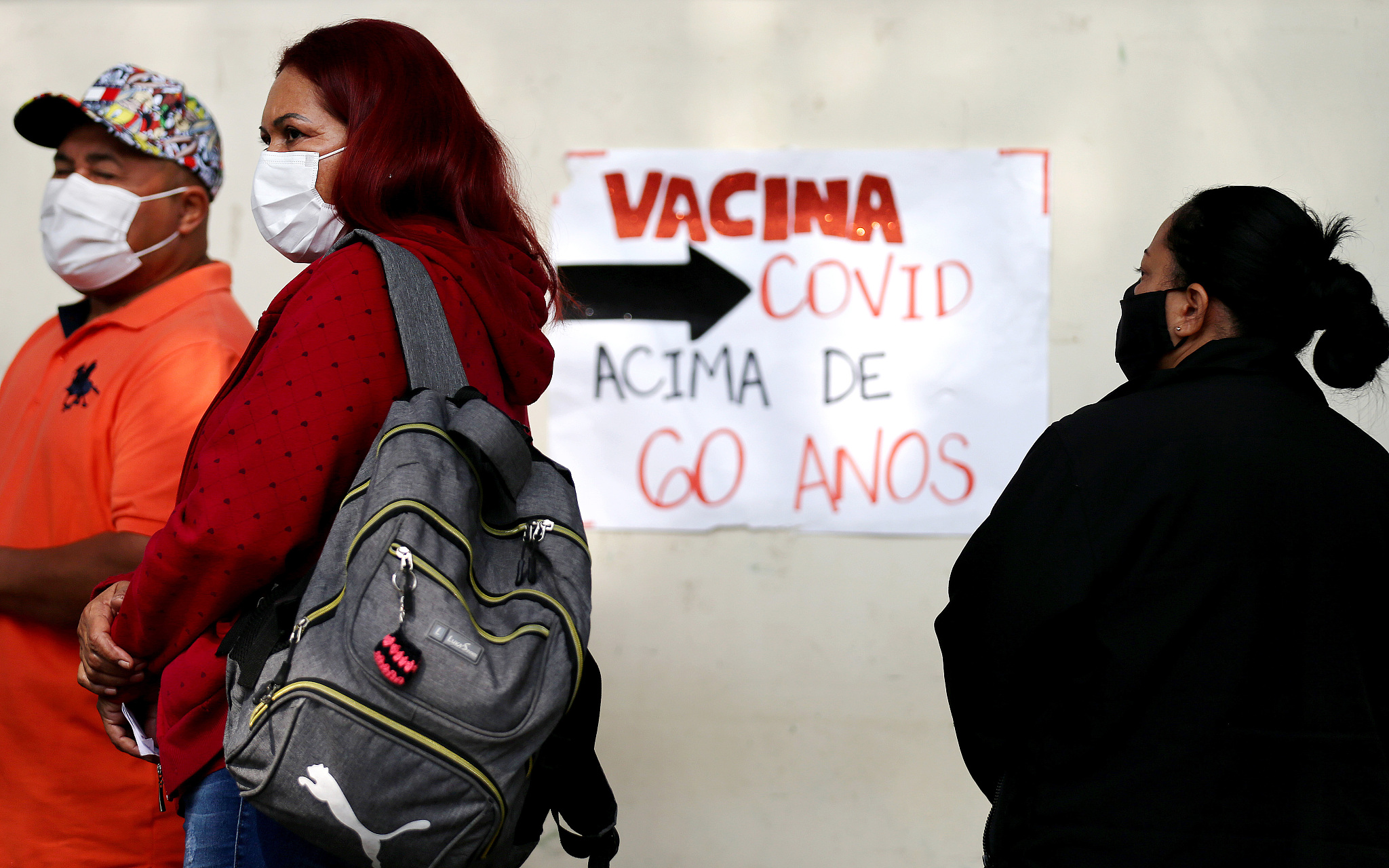
Editor's note: Hannan Hussain is a foreign affairs commentator and author. He is a Fulbright recipient at the University of Maryland, U.S., and former assistant researcher at Islamabad Policy Research Institute. The article reflects the author's opinions and not necessarily the views of CGTN.
On June 1, foreign ministers of the BRICS countries – Brazil, Russia, India, China and South Africa – convened virtually to chalk out pathways to strengthen and reform the multilateral system. "We strive for a fair, just, inclusive, equitable and representative multipolar international system. It is one based on international law and the UN Charter, which recognizes the sovereign equality of all states and respects their territorial integrity while displaying mutual respect for interests and concerns of all," said Indian External Affairs Minister Subrahmanyam Jaishankar.
The meeting, chaired by India on BRICS' 15th anniversary, entailed a broad six-point agreement on what those reforms could look like. More importantly, the specificity of an enduring multilateral system is captured by BRICS' leadership on two key fronts: global health advancement and the sanctity of international trade and development.
One of the determinants of a multilateral system true to responsive governance is an uptick in "meaningful participation" from developing and least-developed countries. BRICS ministers make an important case in global decision-making capacities by recalling how the existing norms and principles, under international law, remain roundly aligned with the universality of the global value system: characteristics of mutual respect, equality and justice that transcend geographical bounds.
It is here that China's emphasis on encouraging the bloc to prioritize equity in urgently needed vaccines emerges as a step in the right direction. Beijing's growing activism for an intellectual property rights waiver, for instance, amplifies the legitimate demands of scores of developing countries that lose a level-playing field to pursue vaccine employment, when the latter stands desired by BRICS.
As assessed evidence in the Bulletin of the World Health Organization has shown, BRICS nations have valuable vaccine manufacturing clout that bolstered affordability of anti-pandemic interventions in the past, particularly in national, regional as well as UN-backed vaccine markets. A compelling performance record of industry-wide partnerships with vaccine manufacturers also emerges as crucial to press home what BRICS ministers presently envision as the "expeditious development and deployment" of COVID-19 health interventions to help developing economies weather their raging virus exigencies.

People wait outside a COVID-19 vaccine clinic at a public health center in the Vila Pereira Barreto neighborhood in Sao Paulo, Brazil, May 15, 2021. /VCG
People wait outside a COVID-19 vaccine clinic at a public health center in the Vila Pereira Barreto neighborhood in Sao Paulo, Brazil, May 15, 2021. /VCG
Pronounced bloc support to operationalize the BRICS vaccine research and development center and advance an integrated early warning system proposal into subsequent phases is thus significant to finesse intra-BRICS coordination and make global decision-making structures "better attuned to contemporary realities."
Interestingly, BRICS ministers succeed in demonstrating global economic governance as the interplay between each country's national progression towards sustainable development targets and the role of the United Nations in decentralizing extensive consultations to facilitate a shared trajectory.
"The BRICS foreign ministers ... send a strong common signal to the world in favor of strengthening and reforming the multilateral system on the bedrock basis of international law, on the basis of the generally recognized central role of the United Nations as the most universal and inclusive organization in global affairs," said Russian Foreign Minister Sergey Lavrov.
Nowhere is this more evident than in BRICS' advancement of the United Nations Conference on Trade and Development (UNCTAD)'s mandate, and the bloc's resolve to protect the World Trade Organization from any escalatory, unilateral or protectionist initiative. On the former, bloc's endorsement is an implicit credit to UNCTAD's valuable scrutiny over issues such as discrepancies surrounding export diversification in developing economies and the challenges posed by a "North-South divergence" in consolidating technology, finance and trade as a unified whole for an open and inclusive global economy. Seeing that consolidation through as an integrated, development-oriented and inclusive whole is the BRICS' stated priority.
By advancing that priority through a reformed WTO at the heart of it, BRICS reminds the world that a functioning multilateral trading system is one that guarantees rules-based principles by upholding the stakes, world trade interests and representation of all majority members without exception. That is a much-needed departure from conflicting efforts currently underway to drive so-called "like-minded" ideologies and plastic reform-building into the decision-making corridors of the organization.
To BRICS' credit, never once it is democratized, representative participation in the WTO conflated with entitlement through democracy. Instead, on its 15th anniversary, the bloc extends focused consistency on WTO's dispute settlement system, appointment procedures and majority developing members – a timely build-up from BRICS' Multilateral Trading System and WTO Reform consensus last year.
Ultimately, by uniforming its anti-pandemic, trade and systemic multilateral reform appeal across principal international organizations, BRICS is fast positioning itself as a "go-to" bloc for key challenges of the present and future. The bloc's foreign ministers meeting also shows that the key to securing more representative, devolved and participatory voices in multilateral decision-making is to know where these challenges have a base.
(If you want to contribute and have specific expertise, please contact us at opinions@cgtn.com.)

